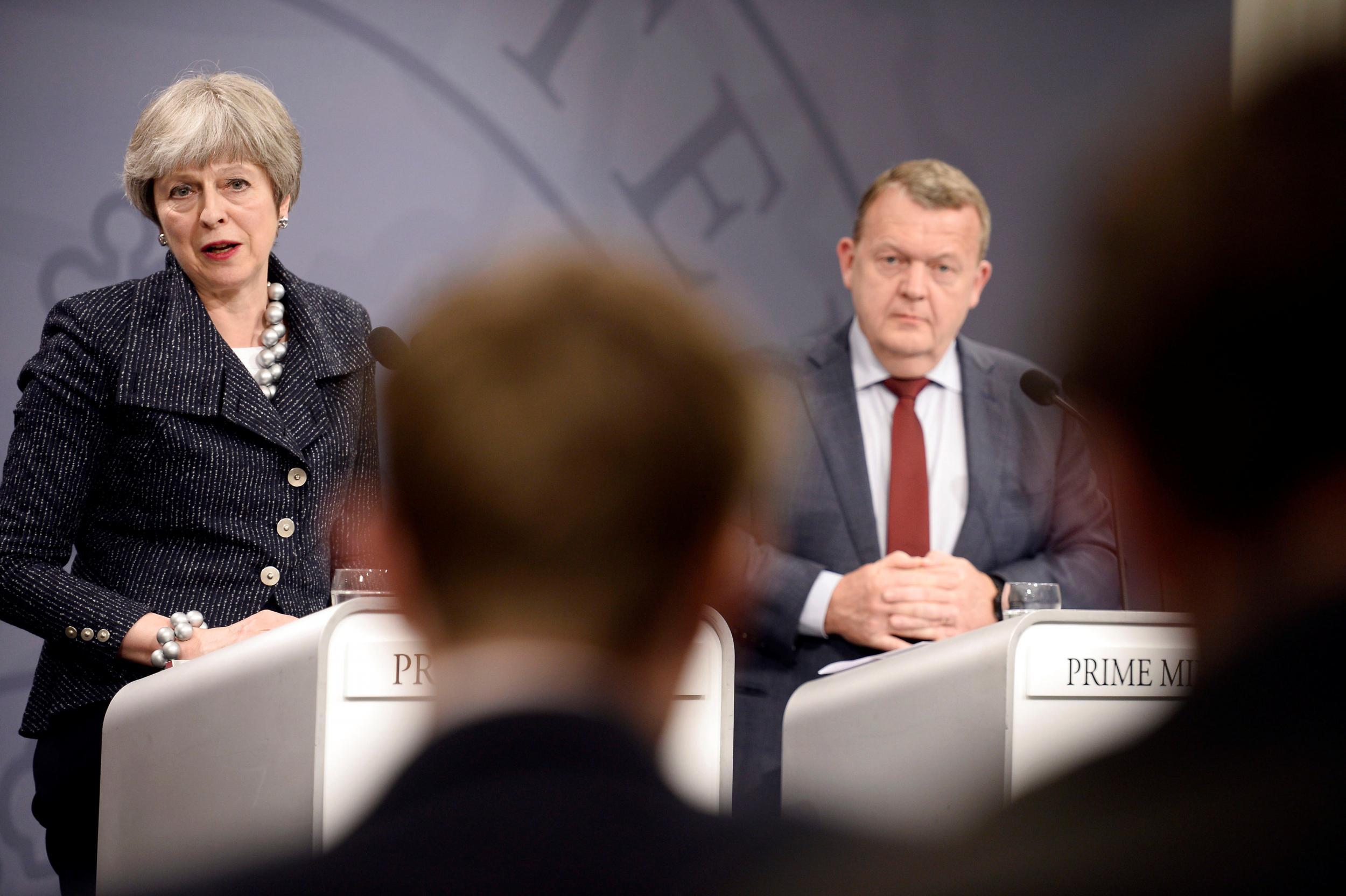Danish prime minister tells Theresa May Brexit will cause more bureaucracy and has a 'price tag'
Lars Løkke Rasmussen said negotiators had to be realistic

Your support helps us to tell the story
From reproductive rights to climate change to Big Tech, The Independent is on the ground when the story is developing. Whether it's investigating the financials of Elon Musk's pro-Trump PAC or producing our latest documentary, 'The A Word', which shines a light on the American women fighting for reproductive rights, we know how important it is to parse out the facts from the messaging.
At such a critical moment in US history, we need reporters on the ground. Your donation allows us to keep sending journalists to speak to both sides of the story.
The Independent is trusted by Americans across the entire political spectrum. And unlike many other quality news outlets, we choose not to lock Americans out of our reporting and analysis with paywalls. We believe quality journalism should be available to everyone, paid for by those who can afford it.
Your support makes all the difference.Denmark’s prime minister has warned Theresa May that Brexit has a “price tag” after a meeting between the two leaders in Copenhagen.
Speaking at a joint press conference with Ms May after the meeting, Lars Løkke Rasmussen said Brexit would create “more bureaucracy” for businesses trading between the two countries.
“We have to be realistic and we have to realise there will be changes,” he said.
“Leaving the single market comes with a price tag. Unfortunately it’s not just a British price tag, there’s also a Danish price tag.
“There’s a reason why we have established the single market and we have to respect the integrity of the single market. There will be more bureaucracy in future, unfortunately.”
At the bilateral meeting in the Danish capital the two leaders discussed Brexit and the nerve agent attack in Salisbury. Ms May is also visiting the Swedish capital Stockholm on the same day for talks with her counterpart there.
Addressing Brexit, the UK Prime Minister said she was “ambitious about what that economic partnership can cover” and said that “a deal that’s good for the UK will also be good for the EU27”.
When quizzed by reporters Mr Rasmussen said it was “too early to talk about compromise” in the Brexit negotiations when asked if he could cut Britain some “slack”.
He said the UK had stated its red lines of leaving the single market, customs union, and jurisdiction of the European Court of Justice and that the EU was working to build the closest possible relationship with the UK after Brexit.
“Brexit was of course a topic today. It is positive that the UK and the European Commission have reached an agreement in principle about large parts of the withdrawal agreement including a transitional period,” he said.
“It doesn’t change the fact that there are still a number of outstanding issues that must be overcome, and time is running out fast. We hope for the closest possible future relations.
“Of course we will have to balance rights and obligations. The UK are leaving the EU and not Europe and from the Danish point of view we want as close a relationship with the UK as possible.”
Denmark has historically been a close ally of Britain in the European Union, having joined at the same time and sometimes taken a more Eurosceptic approach than other member states.
Polls however show euroscepticism has fast lost support in Denmark as the consequences of Britain’s vote for Brexit become clearer. A poll released last week for broadcaster DR shows voters now say they would reject a referendum on leaving by 55 per cent to 27 per cent – a 28 per cent gap in favour of the EU.
This compares to polling conducted in 2016 by the same company before the EU referendum that found the result would be much closer – 44 per cent to 37 per cent, just 7 per cent.
European Commission chief negotiator Michel Barnier, who is leading all face-to-face talks with the UK, has said the PM's decision to leave the single market and customs union would necessarily create "frictions" to trade and would likely see customs checks at borders, ports, and airports.
Join our commenting forum
Join thought-provoking conversations, follow other Independent readers and see their replies
Comments